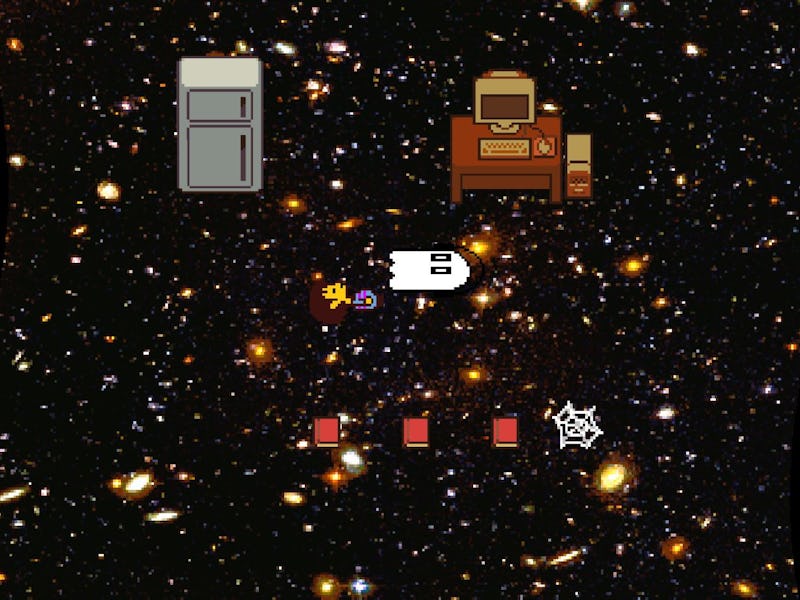Ten Years Ago, A Single Developer Changed Gaming Forever
How the one-man team behind ‘Undertale’ moved millions.

One of the great misconceptions of our time is that size matters, that bigger must always be better. It’s a pesky bit of untruth that sticks around our media no matter how many times we have failed blockbuster movies and awful AAA games. Impact is far more important. The butterfly effect is more real than you think, and sometimes all it takes is something small to release a much bigger trend. That’s what happened ten years ago, when a lone developer launched a 6-hr RPG that changed gaming forever.
Toby Fox released Undertale on Sept. 15, 2015. A few years prior Lucas Pope wowed audiences with Papers, Please, a one-man opus on the perils of dystopian authoritarianism. He showed that one dev with a good idea could do something bigger than most AAA budgets. Fox went a step further by releasing a game that wasn’t just impressive because it was a one-man show, but because it turned an entire genre on its head. And, in the process, he helped define an era of indie gaming unlike anything else before.
From the start, Undertale won critics over. Reviews praised its subversive combat system, witty writing, and deeply emotional storytelling. The game’s tagline is “A traditional RPG where no one has to get hurt.” This wasn’t just some clever marketing copy for a Kickstarter page. Traditional RPGs often hinge on grinding, combat, and moral choices with binary outcomes. Undertale twisted that formula, offering players a chance to talk, joke, flirt, or even spare their enemies.
Commercially, the game was an unqualified success. Developed on a shoestring budget of around $50,000 raised on Kickstarter, Undertale sold over a million copies within a year. By 2018, it had made its way onto consoles like the PlayStation 4 and Nintendo Switch, introducing it to an even wider audience. The sheer word-of-mouth enthusiasm fueled its rise, with players posting playthroughs on YouTube, Twitch, and Tumblr. Every meme, every remix of “Megalovania,” every bit of fanart helped propel the game from cult hit to bona fide mainstream success.
A cheeky dose of self-awareness helped Undertale connect with players.
The indie scene of the 2010s was already mainstream, with breakout hits like Braid, Fez, and Super Meat Boy proving that small teams could make big waves. But Undertale raised the bar in a different way. Where earlier indie successes often showcased mechanical innovation or platforming prowess, Undertale demonstrated the narrative power of a singular creative vision.
It gave other developers confidence that deeply personal, idiosyncratic stories could resonate broadly. You can see Undertale’s DNA in titles like Celeste, which blends precise platforming with themes of self-acceptance, or Omori, another emotionally driven RPG with surreal, unsettling undertones. Its success proved that audiences would rally around games that were unafraid to be weird, earnest, or emotionally raw.
Perhaps most importantly, Undertale helped dismantle the notion that RPGs had to be sprawling, 100-hour epics to be meaningful. Its concise runtime, roughly six hours for a first playthrough, showed that smaller, tightly-designed experiences could leave just as lasting an impact as a massive AAA release. Entire communities formed around dissecting its branching paths, hidden secrets, and morality system.
Many a player fantasized about grabbing a cold one at Grillby’s.
Undertale also helped accelerate the conversation about player choice in games. It highlighted how meaningful decisions aren’t just about what loot you get or which ending you unlock, but about how the game world perceives your actions. In sparing or ending enemies’ lives, players chose what kind of story they wanted to tell about themselves. That shift in perspective rippled outward, influencing both indie developers and larger studios grappling with how to make morality systems matter.
Of course, Undertale had influences of its own. Fox has always been open about his inspirations, and playing Undertale feels like leafing through a scrapbook of gaming history. The quirky humor and surreal tone are direct descendants of EarthBound, Nintendo’s eccentric RPG on the classic SNES that also blurred the line between comedy and melancholy. It was lovingly labeled a “spiritual successor” by fans who are still waiting for Mother 3 to be localized.
Even the game’s minimalist art style reflects both necessity and homage, echoing the 8- and 16-bit sprites of the NES and SNES eras. Fox’s use of limited resources recalls the ingenuity of early developers who had to squeeze personality out of every pixel and sound effect. In that sense, Undertale not only takes inspiration from retro games but shares their spirit of constraint-driven creativity.
One of many understated but iconic moments from Undertale.
Ten years on, Undertale remains more than just an indie success story. It’s a case study in how a single developer’s vision can change the conversation about what games are and what they can do. It made players laugh, cry, question themselves, and actually care about the characters.
The indie space is now filled with games chasing that same balance of humor, heart, and subversion, but Undertale stands as the one that cracked the mold first. In an industry often obsessed with bigger budgets and photorealistic graphics, it’s fitting that one of the most influential games of the past decade came from a retro-inspired RPG where kindness was a viable weapon.